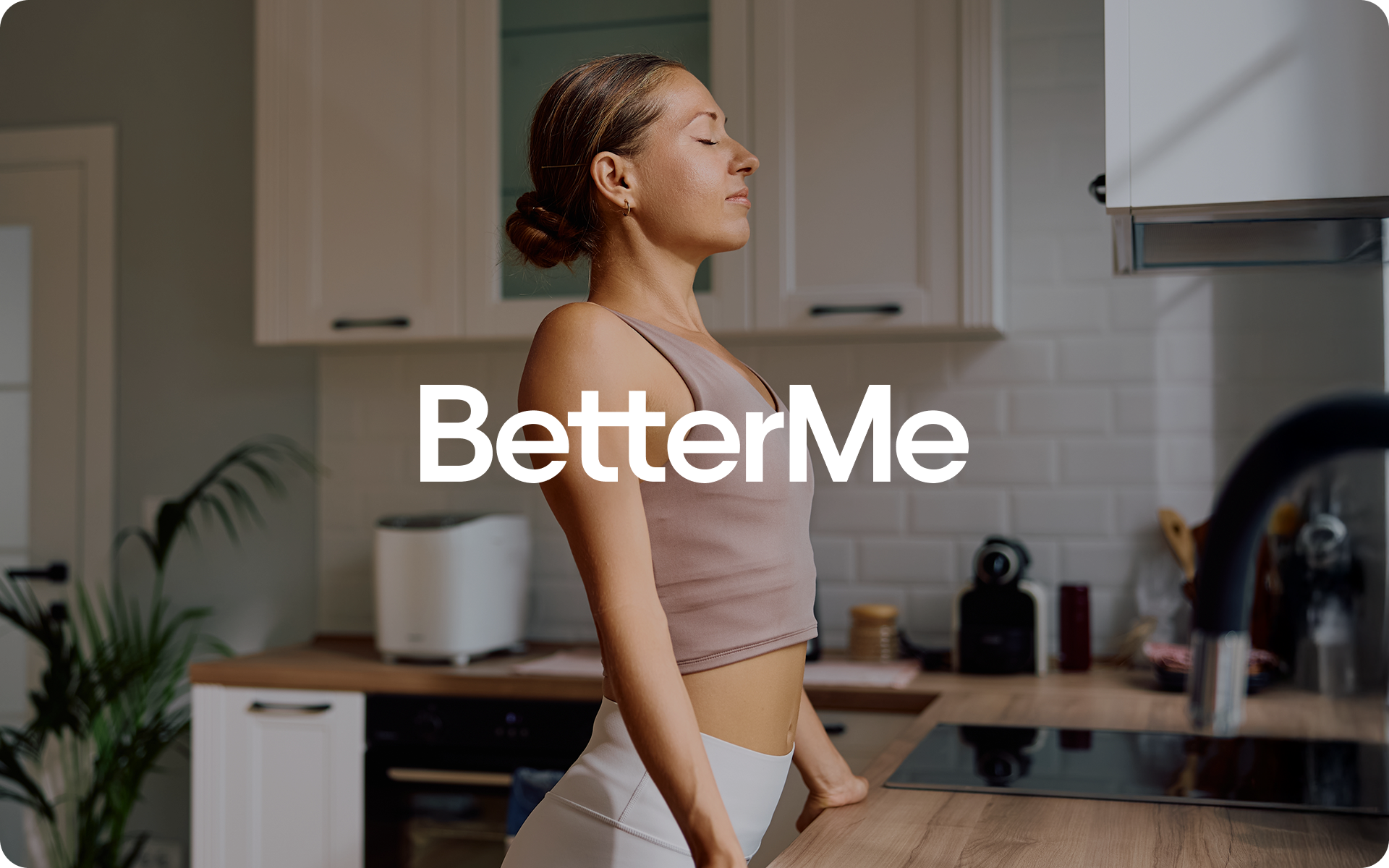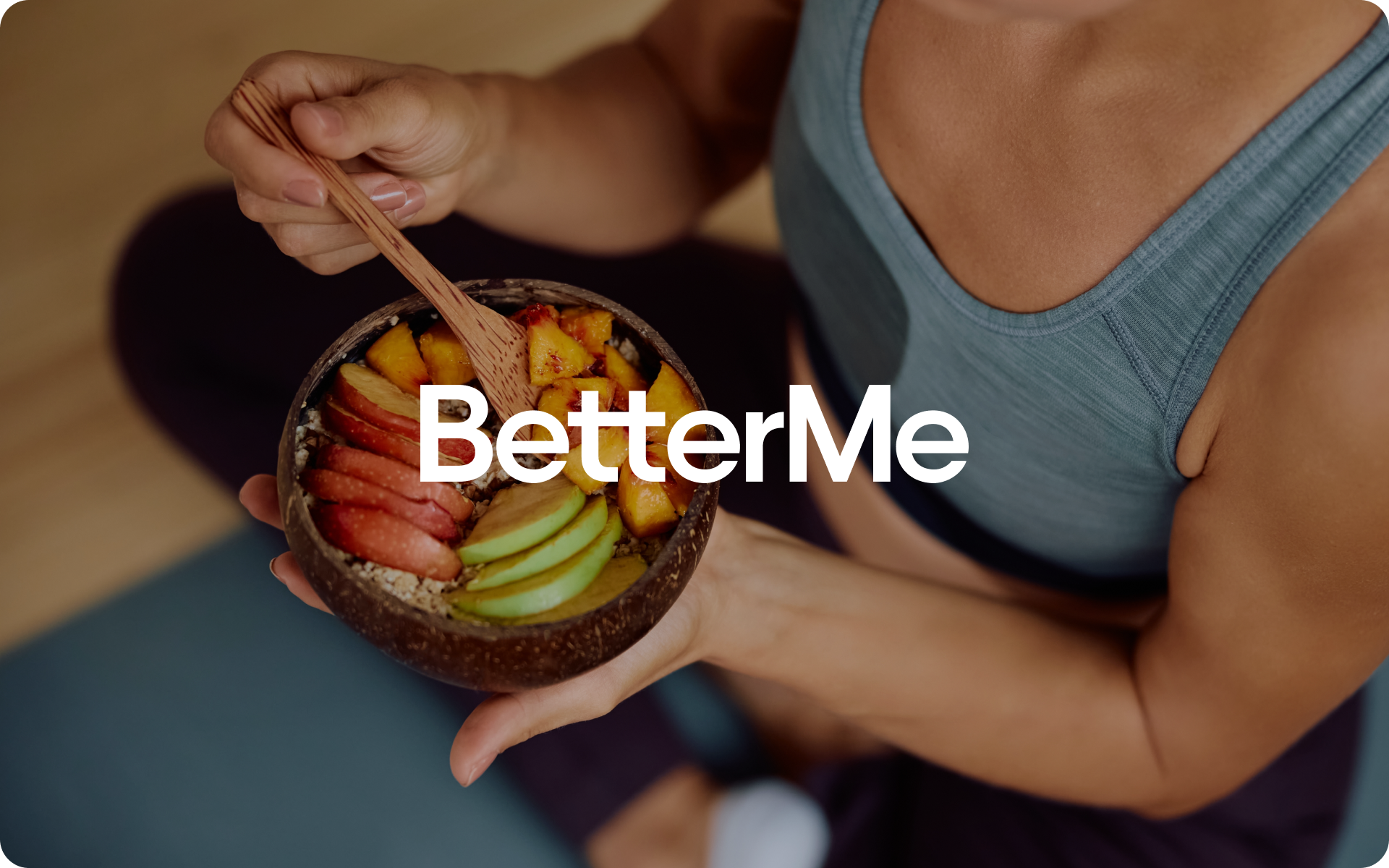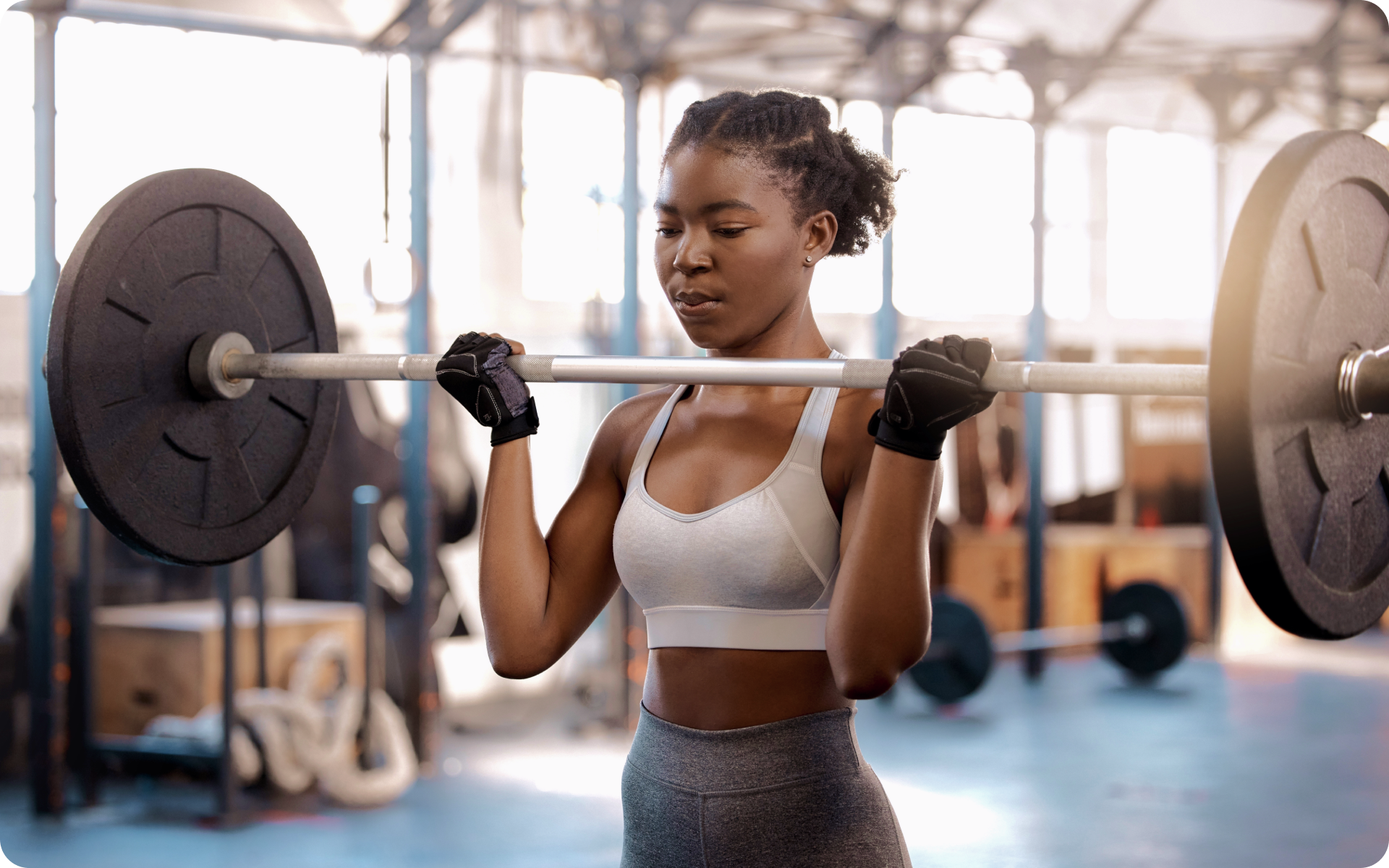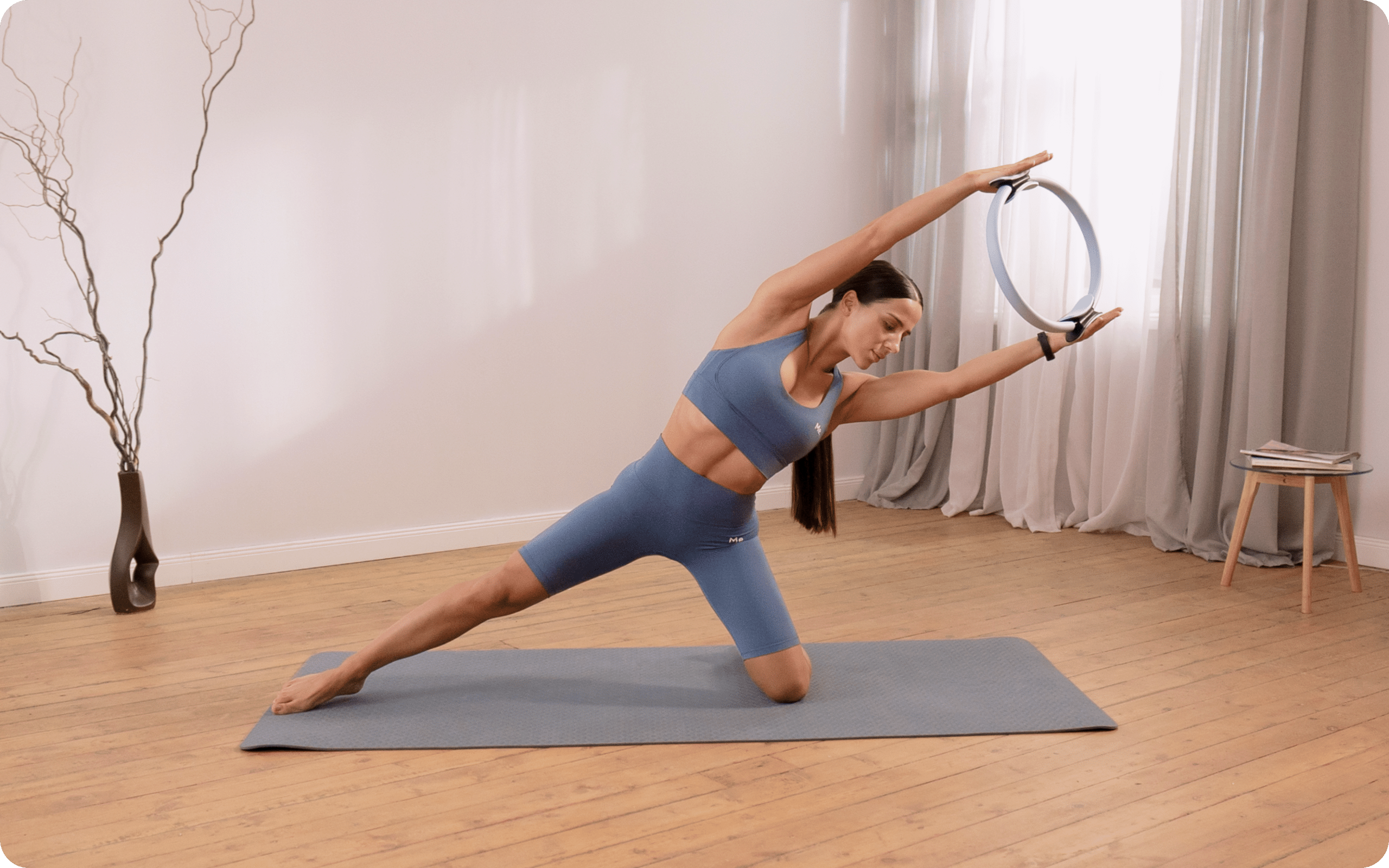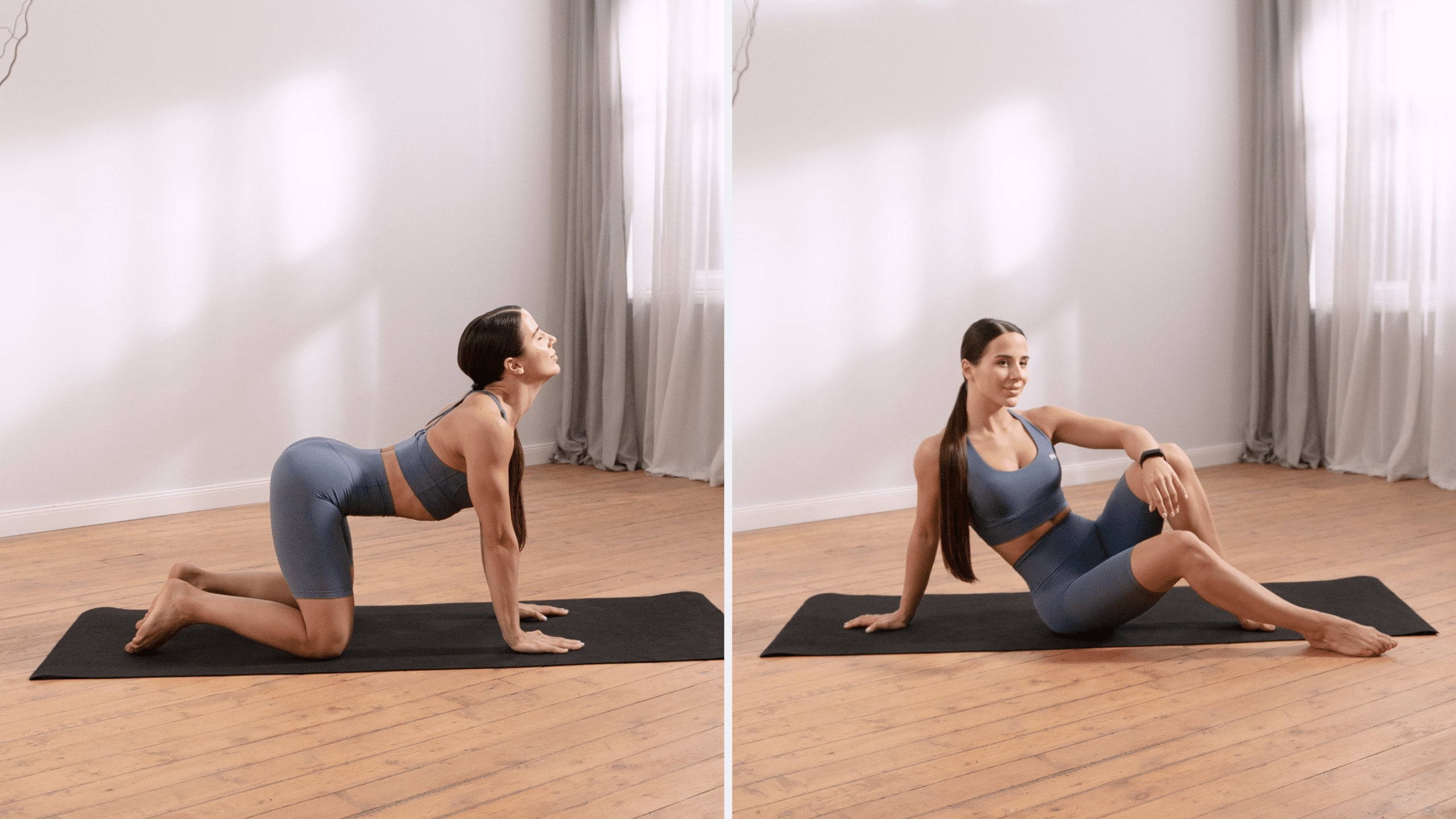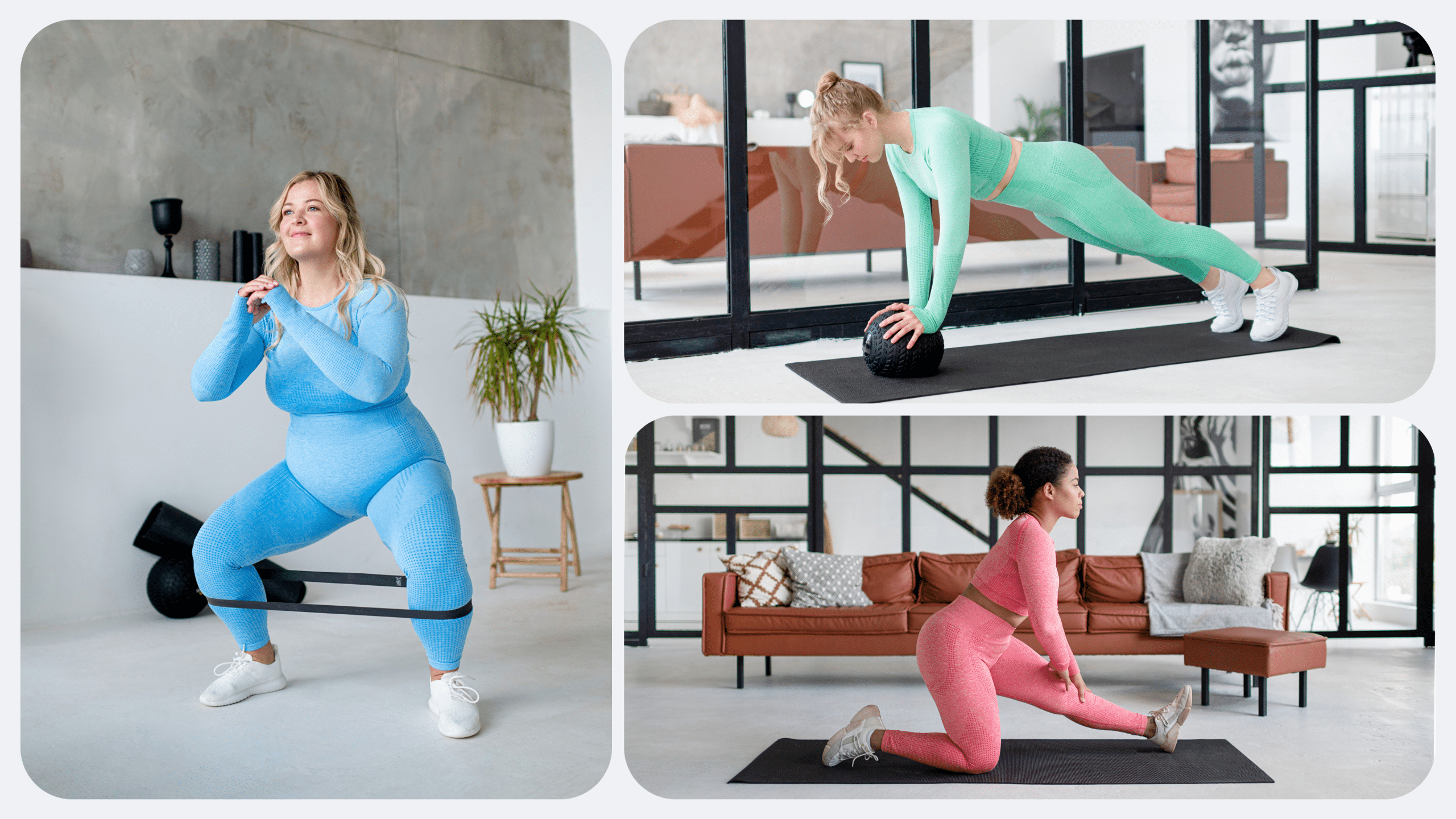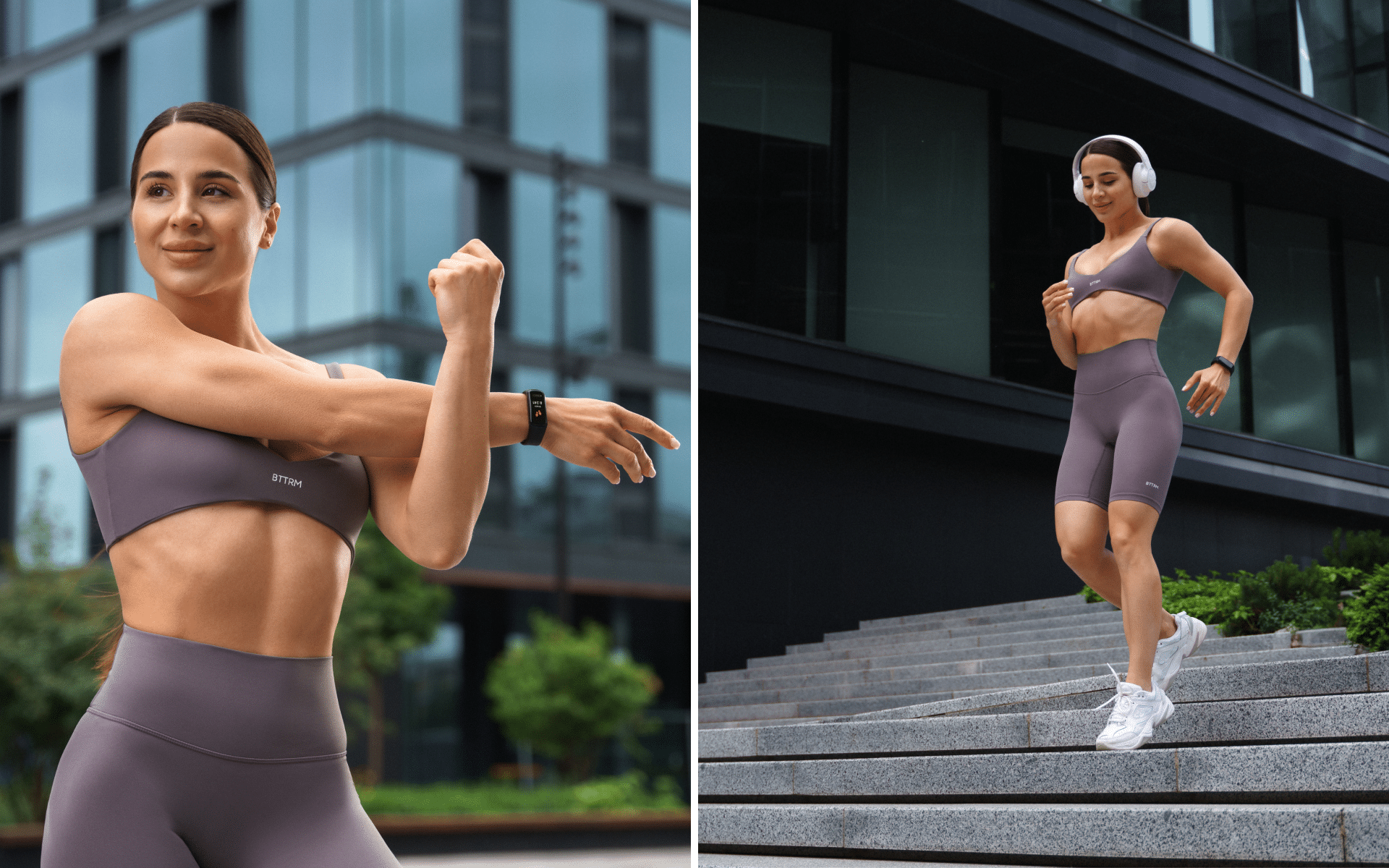Getting your foot out of the door is winning half the battle in exercise. However, once you’ve started working out consistently, you’re faced with more nuanced decisions. One of these is whether or not to work out on an empty stomach, which is also known as fasted exercise.
Fasted exercise is growing in popularity as more bloggers and fitness professionals extol its benefits. But not everyone is a fan of the idea — and with good reason.
There are pros and cons to exercising on an empty stomach, but ultimately, and like most things to do with your health, it comes down to personal fitness, goals, and lifestyle.
In this article, we’ll take a look at the pros and cons of fasted exercise, so you can make an informed decision about whether it is right for you.
Why You Might End up Working Out on an Empty Stomach
First things first, what is fasted exercise? Simply put, it’s working out in a fasting state, which means you haven’t eaten for several hours. This is different from working out after having a meal or snack, which some people refer to as “fed” exercise.
Note that for it to count as fasted exercise, you’ll need to go at least 8-12 hours without eating beforehand. This means that if your last meal was at 7pm, and you wake up to go for a run at 7am, this qualifies as fasted exercise.
However, working out 3-4 hours after you’ve eaten doesn’t count as fasted exercise. So, if your last meal was at 1pm and you hit the gym at 4pm, it’s “fed” exercise, not fasted.
People who exercise in the morning or late at night often don’t have time for a snack or meal ahead of time, so fasted exercise can feel like the only option. There are a few other reasons why you may find yourself working out when you’re hungry:
- For perceived weight loss benefits – a popular reason for doing fasted exercise is that it gives you an extra edge when trying to lose weight.
- Because you have no appetite when you wake up – depending on how early you wake up, you may not be hungry when you first get up.
- To give your digestive system a rest – fasted exercise is said to help give the digestive system a break, allowing it to rest and repair.
Working Out on an Empty Stomach Pros and Cons
What does research say about fasted exercise? The truth is, there isn’t a great deal of scientific literature on the subject, and studies that have been conducted have yielded mixed results.
Let’s take a look at the pros and cons of working out on an empty stomach, based on the available evidence.
Working Out on an Empty Stomach – Pros
Below are some reasons why you may benefit from fasted exercise:
You’ll Burn More Fat
A study among 12 men found that when they exercised in a fasted state, they burned significantly more fat than those who had recently eaten (4).
Here’s how it works – when you’re in a fasted state, your body has no carbs to use for energy. This forces it to tap into fat stores instead, and that means you could be burning a great deal more fat than if you were to exercise after having a meal.
For people who have a lot of weight to lose, this could be an effective way to accelerate results.
You Might Eat Less Later
The same study involving men showed that those who worked out in a fasted state ate significantly less throughout the day than those who had eaten before exercising (4). If you struggle to control your appetite, this could be a great way to keep your diet in check.
You’ll Stave off Nausea If You’re Not a Morning Eater
Nobody likes feeling sick and nauseous when they’re trying to exercise, and if you’re not a morning eater, fasted exercise could be a great way to get in your workout without feeling like you’re going to be sick.
Intense sweat sessions, working weight loss tips, lip-smacking recipes come in one package with the BetterMe app. And all of it is at your fingertips, start transforming your life now!
Working Out on an Empty Stomach – Cons
Unfortunately, the cons of working out on an empty stomach outweigh the pros for most people. Here are a few reasons why fasted exercise may not be ideal:
The Fat-Burn Potential Isn’t Significant
While there’s some evidence that fasted cardio can help you burn more fat, the gains are small, and they only apply to cardio, not resistance training (1).
Furthermore, fat-burning isn’t the most efficient use of your energy. And we all know that the human body is far more complex than simply “burning fat”.
So, if you’re looking to achieve more with your workouts, don’t be fooled by the promise of fat-burning benefits — they may not be as significant as you think.
You’ll Miss out on Excess Post-Exercise Oxygen Consumption
EPOC, or excess post-exercise oxygen consumption, is a natural process that is triggered by exercise. It’s responsible for helping you burn more calories, even after you’re finished working out (3).
The downside is that it only happens when you’ve exercised at a relatively high intensity for at least 30-45 minutes, and when you’re exercising on an empty stomach, it can be difficult to reach that level.
Think about it—is the promise of burning a few extra fat calories really worth the risk of missing out on greater gains? We don’t think so.
You Might Feel Too Weak to Exercise
When you’re in a fasted state, there’s not an adequate supply of carbs for energy, and this could leave you feeling weak and lethargic throughout your workout.
If you’re planning on doing a tough HIIT session or lifting heavy weights, fasted exercise may not be the best option.
You Might Lose Hard-Earned Muscle
The human body is a lot like an engine — it needs fuel to run efficiently. When you’re in a fasted state, your body isn’t receiving the macros it needs to function optimally. This could lead to muscle loss. That’s when your body breaks down protein stores to use as energy.
Most young people with a high fitness level and good body composition can get away with it, but for the average Joe, it’s not worth the risk. Seniors in particular should look out for this, as their muscles are already more prone to breakdown.
In short — if your goal is to build muscle and maintain a lean physique, fasted exercise may not be the best option.
You Might Not Progress as Quickly
When you work out in a fasted state, your body lacks the resources it needs to grow and become stronger. This is why many bodybuilders and serious athletes prefer to work out after eating a meal as it helps them get the most out of their workouts and progress quickly.
Read more: Thigh Workout Guide: 7 Effective Exercises for Building Leg Strength
You’ll Trigger Stress Hormones
Exercising on an empty stomach triggers stress hormones, such as cortisol. These hormones can be beneficial — they trigger fat-burning and help you stay alert.
But they can also be detrimental to your progress. Too much cortisol can lead to higher levels of inflammation, which can slow down your recovery and make reaching your goals more difficult (5).
Not to mention the link between high cortisol levels, cravings, and increased fat storage (6). You may find yourself ravenously craving foods you’d normally be able to resist.
You May Take Enjoyment out of Your Workouts
If you’re anything like us, the idea of working out on an empty stomach just doesn’t seem that appealing. Without the proper fuel, it’s difficult to stay focused and enjoy the process.
We believe that in order for exercise to be effective, you need to actually enjoy doing it. That’s why we recommend eating a meal before your workout — not only will it make you feel good, you’ll also be able to perform better. When you see results, that’s when it all becomes worth it.
What Should You Eat Before a Workout?
It’s usually best to eat a light meal or snack an hour or two before exercising so your body has time to digest it. This will ensure you have enough energy to get the most out of your workout.
The best pre-workout snacks are mainly carb-focused with some protein. That way, it’s easy to break down to offer quick energy.. It’s also important to stay hydrated before and during your workout. Below are some of our favorite pre-workout meals and snacks:
- Oatmeal with peanut butter, banana slices, and a scoop of protein powder
- Greek yogurt with berries and nuts
- A smoothie made with banana, almond milk, and peanut butter
- Toast with peanut butter or honey
- A handful of trail mix or granola with nuts and dried fruit
- Hummus with carrot sticks and celery
- An apple with nut butter
Ultimately, the best pre-workout snack is one that you enjoy and that provides your body with enough energy to finish your workout.
Whether you’re looking to simply pep up your fitness routine, jazz up your diet with mouth-watering low-calorie recipes or want to get your act together and significantly drop that number on your scale – BetterMe app has got you covered! Improve your body and revamp your life with us!
Is It OK to Drink Pre-Workout on an Empty Stomach?
If you’re looking for a quick energy boost before your workout, pre-workout drinks are an option.
However, it’s important to note that many pre-workout drinks contain large amounts of caffeine and other stimulants. This is why it’s often best to avoid them on an empty stomach — they could cause an upset stomach or nausea (2).
If you decide to take a pre-workout drink, make sure to read the label for dosing instructions. It’s also a good idea to pair your pre-workout drink with a light snack before you work out.
When Should You Eat Before a Workout?
Timing is an important factor when it comes to pre-workout meals. Eating too close to your workout could cause gastrointestinal distress, while eating too far away could leave you feeling tired and sluggish.
For the average person, eating a meal or snack approximately an hour before your workout should give you plenty of energy and prevent any stomach issues. If the meal is particularly large or contains high-fiber foods, then it’s best to eat it a few hours before your workout.
Read more: Your Flat Tummy Workouts Just Got Better With This Guide
FAQs
Is it good to work out on an empty stomach in the morning?
It’s good to work out on an empty stomach if you find it works better for your body and lifestyle. If you feel more energized and focused during a morning workout without eating breakfast first, then you should go for it.
However, it’s not necessary to force yourself to work out on an empty stomach if you don’t feel comfortable doing so. Your body needs fuel to perform at its best, and some people may experience dizziness or fatigue if they exercise without eating first.
Some people believe that working out on an empty stomach in the morning can lead to increased fat-burning. This theory is based on the idea that when we exercise, our bodies use stored fat as energy rather than relying on glucose from food. Therefore, by exercising before eating, you may be able to tap into those stored fat reserves more efficiently.
However, research on the effectiveness of this practice is limited and inconclusive.
One study found that participants who did fasted cardio burned more fat than those who exercised after eating breakfast (7). However, the difference in fat-burning was not significant enough to have a major impact on weight loss.
Other studies have shown conflicting results. Some have suggested that working out on an empty stomach may actually lead to a decrease in muscle mass and slower metabolism.
Another potential benefit is improved insulin sensitivity. Insulin sensitivity refers to how well our cells respond to insulin and properly regulate blood sugar levels. Some studies have shown that exercising in a fasted state can improve insulin sensitivity, which may have positive effects on overall health (7).
Potential Drawbacks
There are also potential drawbacks to working out on an empty stomach. Exercising requires energy, and if you haven’t eaten anything beforehand, you may not have enough fuel to perform at your best. This could lead to decreased exercise intensity and a shorter workout.
In addition, some individuals may experience discomfort or dizziness when working out without eating first. It’s important to listen to your body and make sure you don’t push yourself too hard.
Finding what Works for You
Ultimately, the decision regarding whether or not to work out on an empty stomach in the morning should be based on what works best for you. Some people find they have more energy and can perform better when they eat a small snack before exercising, while others feel fine working out on an empty stomach.
It’s important to remember that everyone’s body is different and what works for one person may not work for another. Experiment with different approaches and listen to your body’s cues to find the best solution for you.
Is it better to work out before or after breakfast?
It’s better to work out when you feel the most energized and motivated, regardless of whether it’s before or after breakfast.
If you’re an early riser and have the energy to exercise first thing in the morning, then working out before breakfast may be a great option for you. This can also help kickstart your metabolism and give you a boost of energy for the rest of your day.
However, if you’re not a morning person and prefer to exercise later in the day, then it’s perfectly fine to eat breakfast before your workout. In fact, eating a small meal or snack before exercising can provide your body with the necessary fuel and nutrients to power through your workout.
The most important thing is to listen to your body and do what feels best for you. Don’t force yourself to work out at a time that doesn’t feel natural or comfortable.
Should I work out first thing in the morning?
Working out first thing in the morning certainly has its benefits. For one, it can help boost your energy levels and set a positive tone for the rest of your day. It also allows you to get your workout out of the way early on, freeing up time in the evening for other activities.
If you have a busy schedule later in the day, then working out first thing in the morning may be a good choice for you. This way, you won’t need to worry about fitting in your workout between work or other obligations.
However, whether or not working out first thing in the morning is the best option for you is ultimately dependent on your individual preferences and lifestyle.
If you have a more flexible schedule or prefer to work out after work, then it may be better for you to save your workout for later in the day.
For some people, working out first thing in the morning can disrupt their established morning routine. If you’re used to slowly easing into your day with a cup of coffee and some quiet time, adding a workout could throw off your whole morning. It’s important to consider whether or not you’re willing to make adjustments to your routine to fit in an early morning workout.
Some people are natural early birds and have no trouble jumping out of bed and hitting the gym. However, others may struggle with low energy levels in the morning and may be unable to perform at their best during a workout. If you fall into the latter category, it may be better for you to work out later in the day when your energy levels are naturally higher.
Ultimately, whether or not to work out first thing in the morning is a personal preference. Some people thrive off starting their day with exercise, while others prefer to save it for later. It’s important to listen to your body and do what feels best for you.
What should I eat after a workout on an empty stomach?
After a fasted morning workout, it’s important to refuel your body with nutritious foods. You should aim for a balanced meal or snack that includes a good source of protein for msucle building, carbohydrates for recovery, and healthy fats for additional support and satiety.
Some good options include:
- Scrambled eggs with avocado on whole-grain toast
- Greek yogurt with granola, berries and nuts
- Grilled chicken with quinoa and vegetables
- A protein smoothie made with fruits, vegetables, nut butter, and a scoop of protein powder
- A turkey and cheese wrap in a whole-grain tortilla
Remember to also drink plenty of water to rehydrate your body after sweating during your workout (8). Listen to your hunger cues and fuel your body accordingly. Eating a well-balanced meal after a fasted workout can help replenish energy stores and aid muscle recovery. Experiment with different meal options to find what works best for you and helps you feel energized throughout the day.
The Bottom Line
Working out on an empty stomach can be beneficial, but it’s not suitable for everyone. Fasted exercise is not the best way to promote muscle growth and maintain a lean physique.
We recommend consulting a nutritionist or doctor before you decide whether fasted exercise is right for you. And regardless of whether or not you choose to give it a try, always stay hydrated and make sure you get the nutrients you need to reach your fitness goals.
DISCLAIMER:
This article is intended for general informational purposes only and does not serve to address individual circumstances. It is not a substitute for professional advice or help and should not be relied on for making any kind of decision-making. Any action taken as a direct or indirect result of the information in this article is entirely at your own risk and is your sole responsibility.
BetterMe, its content staff, and its medical advisors accept no responsibility for inaccuracies, errors, misstatements, inconsistencies, or omissions and specifically disclaim any liability, loss or risk, personal, professional or otherwise, which may be incurred as a consequence, directly or indirectly, of the use and/or application of any content.
You should always seek the advice of your physician or other qualified health provider with any questions you may have regarding a medical condition or your specific situation. Never disregard professional medical advice or delay seeking it because of BetterMe content. If you suspect or think you may have a medical emergency, call your doctor.
SOURCES
- Effects of aerobic exercise performed in fasted v. fed state on fat and carbohydrate metabolism in adults: a systematic review and meta-analysis (2016, cambridge.org)
- Effects of Coffee on the Gastro-Intestinal Tract: A Narrative Review and Literature Update (2022, nih.gov)
- Effects of exercise intensity and duration on the excess post-exercise oxygen consumption (2006, pubmed.gov)
- Exercising in the Fasted State Reduced 24-Hour Energy Intake in Active Male Adults (2016, nih.gov)
- Physiology, Cortisol (2022, nih.gov)
- Stress, cortisol, and other appetite-related hormones: Prospective prediction of 6-month changes in food cravings and weight (2018, nih.gov)
- The Effects of Six Weeks of Fasted Aerobic Exercise on Body Shape and Blood Biochemical Index in Overweight and Obese Young Adult Males☆ (2023,nih.gov)
- Exercise – the low-down on hydration (2022,nih.gov)

